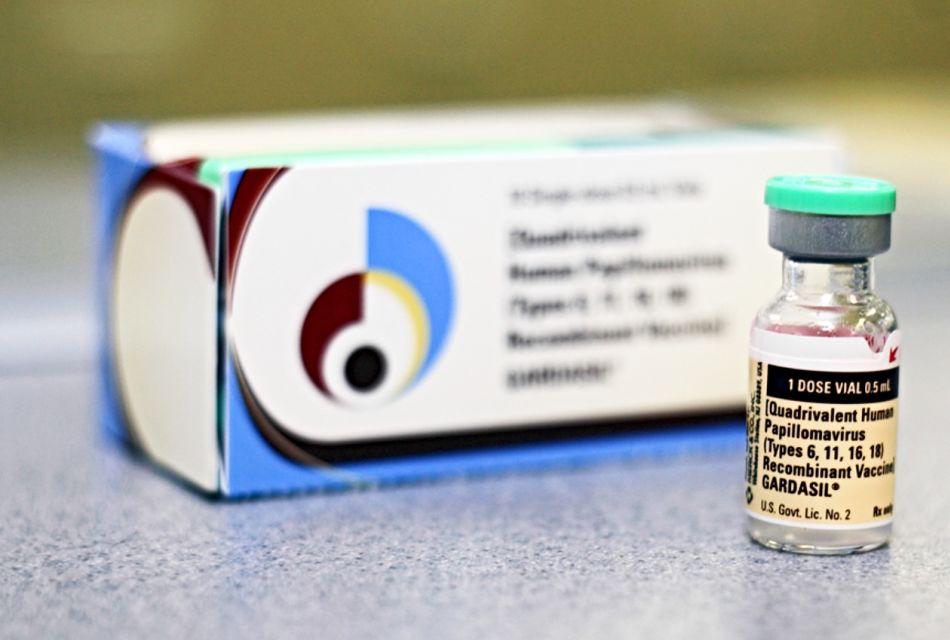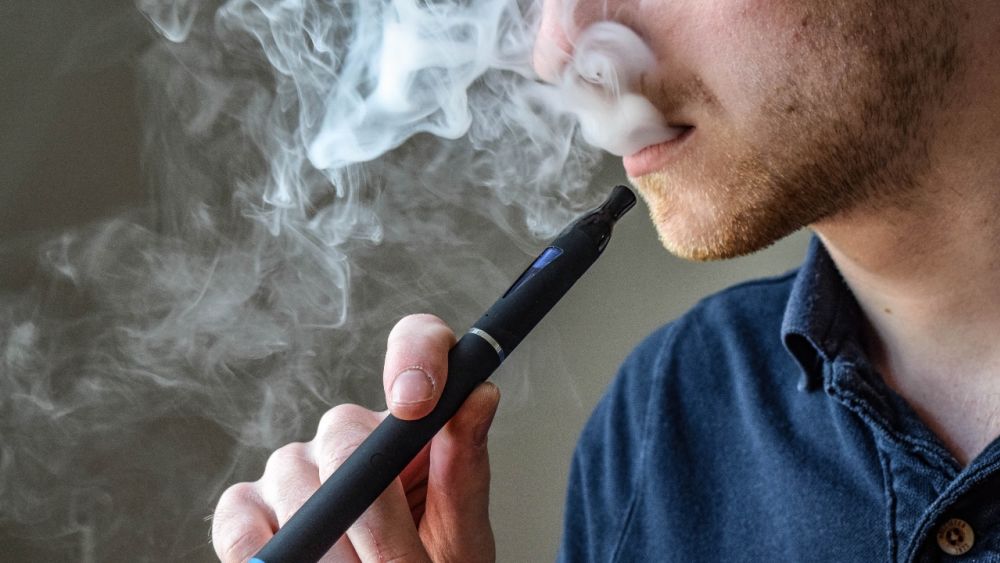HPV - The Cancer Virus
The HWN Team | Cutting Edge

image by: Jan Christian
In the early 1970's, HPV received a great deal of media attention when Harald zur Hausen first postulated its ability to cause the second most common cancer in women...cervical cancer. Now, who gets the HPV vaccine has become the overriding issue, especially if its your kid!
Since its discovery in 1956, HPV has hogged the limelight, thanks to controversies linked to the virus. In the early 1970's, HPV received a great deal of media attention when Harald zur Hausen first postulated its ability to cause the second-most common cancer in women--cervical cancer. In those days, people believed that HPV could just cause skin infections and that herpes simplex virus was associated with cervical cancer, but not causative.
In early November 2008, writing for an established website, a board certified specialist in internal medicine, James A. Howenstine revealed the following: Human papilloma virus (HPV) does not cause cervical cancer. The infections caused by HPV are self-limiting and are not a health threat to healthy females. . . in women who are previously infected by a type of HPV virus found in HPV vaccine, the vaccine itself increases by 44.6 percent the risk for a precancerous cervical lesion.1
This controversial statement came up in a year when the German Cancer Research Center’s Dr. Harald zur Hausen won the Nobel Prize in Medicine for his discovery that HPV causes cervical cancer.
In a press release that announced Hausen’s name for the 2008 Nobel Prize in Medicine, the Nobel Foundation pointed out, “More than 5% of all cancers worldwide are caused by persistent infection with this virus [HPV]. Infection by the human papilloma virus is the most common sexually transmitted agent, afflicting 50-80% of the population. Of the more than 100 HPV types known, about 40 infect the genital tract, and 15 of these put women at high risk for cervical cancer…Human papilloma virus can be detected in 99.7% of women with histologically confirmed cervical cancer, affecting some 500,000 women per year”.2
According to the Foundation, Hausen unveiled HPV’s novel properties, which amid other things facilitated the understanding of the cancer-causing mechanism of the virus. “He made HPV16 and 18 available to the scientific community,” said the press release, adding that because of this discovery, HPV vaccines were developed and it substantially protected women against the two high risk strains of HPV (16 and 18). “The vaccines may also reduce the need for surgery and the global burden of cervical cancer,” the press release suggested. Hausen deserves the Nobel Prize for his inspiring works.
However, what Howenstine wrote is also not something one would completely ignore. As an expert, Howenstine worked thoroughly to substantiate his views and came up with some important facts to prove his statement. The evidence he cited include, amid others, a 31 March (2003) news release by the U.S. Food and Drug Administration (FDA). It noted, “Most women who become infected with HPV are able to eradicate the virus and suffer no apparent long-term consequences to their health.” According to the release, although HPV infection rate in women under 30 is high, most infections in this group are “short-lived and not associated with cervical cancer”.3
Not only have the experts questioned the infection pattern of HPV, but they have also questioned the effectiveness of HPV vaccine in cervical cancer, fueling more controversies. The editor-in-chief of the New England Journal of Medicine Jeffrey M. Drazen and coauthors noted that the effectiveness of HPV vaccine is “limited by at least these two factors.” “First, not all cervical cancer is caused by HPV-16 or HPV-18 [these are the HPV types present in HPV vaccine], and second, it appears necessary to vaccinate young women before they are infected with these two serotypes,” Drazen and coauthors wrote. “Also, whether this approach will extend the paradigm of vaccination to the prevention of death and disability from cervical cancer is an unanswered question”.4
On top of all of this, the spectrum of HPV-associated cancers is getting wider - it is not just limited to only cervical cancer.
The Centers for Disease Control and Prevention (CDC) released a report, which revealed that between 1998 and 2003 nearly 25000 cases of HPV-associated cancers took place annually in the 38 states and the District of Columbia. “The top HPV-associated cancer sites were cervix, oral cavity and oropharynx, anus, vulva, penis, and vagina”.5
According to the data by CDC, apart from cervical cancer, HPV was associated with nearly 7400 annual cases (male 5700, female 1700) of oral cancers. That apart, as many as 3000 cases of anal cancers, affecting 1900 women and 1100 men were associated with HPV, noted the report by CDC. However, whites had the highest rates of HPV-associated anal cancer in women whereas blacks had the highest rates of this cancer in men.
The report by the CDC, also found that there were nearly 2300 new cases of HPV-associated vulvar cancer each year. While cervical cancer had a higher incidence rate in black women, white women were more prone to develop vulvar cancer. HPV-associated cancer of penis and vagina were relatively rare (800 and 600 new cases each year, respectively), according to the CDC report. The incidence of cancer of penis was high in Hispanic men, and black women had a higher preponderance for vaginal cancer.
And out of left field comes evidence that HPV has been implicated in head and neck cancers and is thought to be directly related to oral sex.6
Additionally, the issue of who gets vaccinated has become an overriding issue.
Because HPV is an STD, routine vaccination is recommended for 11 and 12 year-old girls. And overall per the CDC "HPV vaccines are recommended for all teen girls and women through age 26, who did not get all three doses of the vaccine when they were younger." Obviously this has created quite an uproar especially in the United States. And its even controversial in India.7,8
Also because HPV related head and neck cancer is on the rise, HPV vaccination is also recommended for boys starting at age 11 or 12 years and all teen boys and men through age 21, who did not get all three doses of the vaccine when they were younger. Nothing like adding more fuel to the vaccination debate. Furthermore, it needs to be inexpensive since HPV related cancers are noted in both developed and developing countries.9,10
The Bottom Line
Hausen's discovery that HPV virus can cause cancer is definitely a paradigm buster. It has changed our conventional thinking about what causes cancer, as well as helping to reinvigorate ongoing immunotherapy cancer research.
At the same time the HPV vaccine brings its own controversies to the table, especially when it comes to who should be vaccinated. And that's another story in itself. Perhaps, a mass awareness campaign is needed across the globe so that people can make an informed decision regarding the use of HPV vaccine especially for their children.
The issues surrounding HPV continue to hog the limelight but in the process the vaccine will probably save countless lives.
Published November 12, 2008, updated June 09, 2012
References:
- Howenstine J, Human Papilloma Virus Vaccine Fraud, NewsWithViews.com, November 3, 2008
- The Nobel Prize in Physiology or Medicine 2008, Press Release, Nobelprize.org, 6 October 2008
- Adams M, The Great HPV Vaccine Hoax Exposed, A NaturalNews Special Report, NaturalNews.com
- Baden L, Human Papillomavirus Vaccine — Opportunity and Challenge, N Engl J Med 2007; 356:1990-1991
- CDC Releases First Estimate of Human Papillomavirus-Associated Cancer Data, Press Release, November 3, 2008
- STDs...The Latest is...Head and Neck Cancer, HealthWorldNet.com, Apr 29, 2011
- Quadrivalent Human Papillomavirus Vaccine, Recommendations of the Advisory Committee on Immunization Practices, MMWR, March 23, 2007
- Vaccine trial's ethics criticized, Nature, Published online 22 June 2011 | Nature 474, 427-428 (2011)
- Who else should get the HPV vaccine? CDC
- Scientists Identify Common HPV Genotypes In Northern India, Encourage Vaccination, ScienceDaily, Oct. 11, 2009

Introducing Stitches!
Your Path to Meaningful Connections in the World of Health and Medicine
Connect, Collaborate, and Engage!
Coming Soon - Stitches, the innovative chat app from the creators of HWN. Join meaningful conversations on health and medical topics. Share text, images, and videos seamlessly. Connect directly within HWN's topic pages and articles.
















